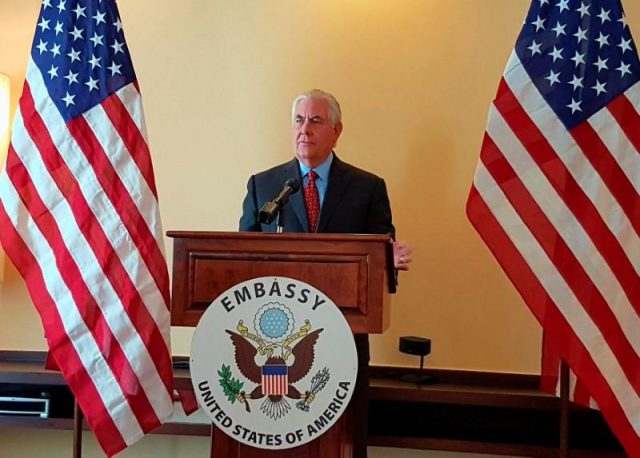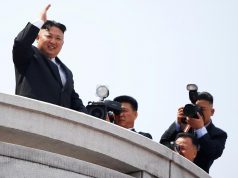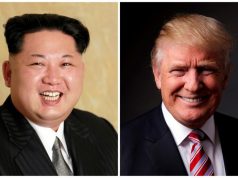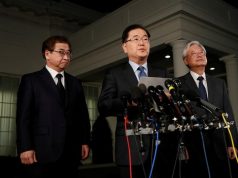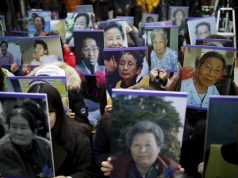MEXICO CITY/CARACAS — U.S. Secretary of State Rex Tillerson’s first tour of Latin America got off to a rocky start on Friday with U.S. ally Mexico distancing itself from his suggestion that Venezuela’s President Nicolas Maduro could be toppled by his own military.
Tillerson ruffled feathers across the region on the eve of his five-nation tour with comments in Texas defending 19th century U.S. foreign policy in Latin America and suggesting the Venezuelan army could manage “a peaceful transition” from Maduro.
Both Maduro and his defense minister condemned the comments on Friday, and even Mexico, no friend of the Venezuelan government, was at pains to say it did not support any non-peaceful solution in the South American country that is engulfed in a political and economic crisis.
“Mexico, in no case, would back any option that implies the use of violence, internal or external, to resolve the case of Venezuela,” Mexican Foreign Minister Luis Videgaray said at a news conference, flanked by Tillerson and Canadian counterpart Chrystia Freeland.
“It will have to be the Venezuelans themselves who find a peaceful route, a peaceful solution to this crisis,” he said.
Tillerson, in Mexico on the first leg of a trip that will also take in Argentina, Colombia, Peru and Jamaica, did not repeat his comments about military action, but reiterated a call for Maduro to reinstate a legislative assembly and hold free and fair elections.
In Venezuela, Defense Minister Vladimir Padrino accused Washington of seeking to undermine democracy in Latin America and return to the days of “imperialism,” lashing out at Tillerson during a broadcast on state television.
Padrino said Tillerson’s Latin American tour was aimed at fomenting a regional “intervention” against Venezuela’s socialist government.
“The armed forces radically reject such deplorable remarks that constitute a vile act of interference,” he said, flanked by military top brass, before reading a formal statement of support for Maduro.
At a political rally later in the day, Maduro said he would not be bowed by Tillerson’s comments.
“We will not give in. They don’t know what we are made of,” Maduro said.
Calls for military action
Venezuela’s opposition leaders have long urged the military to take action against Maduro. Maduro claims the United States and opposition parties are part of an international right-wing conspiracy to oust him and get their hands on the OPEC nation’s oil wealth.
U.S. President Donald Trump has himself suggested possible military intervention in Venezuela, though that was widely rejected in Latin America. Trump has imposed individual and economic sanctions on Venezuela’s government, accusing it of rights abuses and corruption.
On Thursday, Tillerson referred to the 1823 Monroe Doctrine, which is widely seen in Latin America as a justification for U.S. armed intervention in the region, saying it was “as relevant today as it was the day it was written.”
Discussing Venezuela, the top U.S. diplomat said militaries in Latin America often “handled” transitions from bad governments, but insisted he was not advocating “regime change.”
“If the kitchen gets a little too hot for him, I am sure that he’s got some friends over in Cuba that could give him a nice hacienda on the beach and he could have a nice life over there,” Tillerson said, referring to 55-year-old Maduro, who has a close relationship with Cuba’s communist government.
Senior military leaders have consistently stood by Maduro, whom critics accuse of turning Venezuela into a dictatorship and wrecking its economy.
But discontent among the rank-and-file, especially at their own economic penuries, is evident.
There have been some small uprisings against Maduro from within the security forces. A National Guard captain led an attack on a barracks but was later arrested. A police helicopter pilot, Oscar Perez, who lobbed grenades at government buildings, was tracked down and killed last month.

